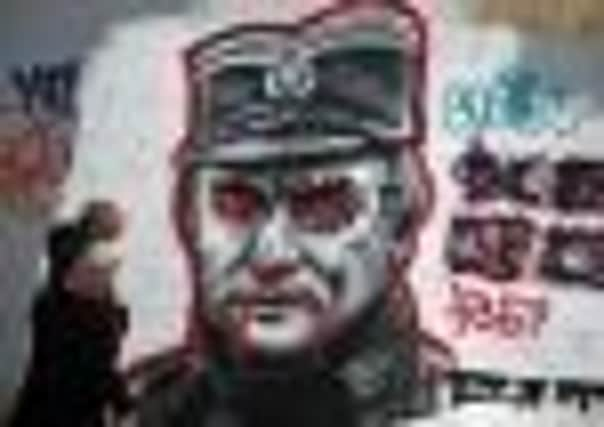Ratko Mladic must finally face a court over charges of genocide


Mladic, 70, was in charge of the Bosnian Serb army when, over two nights in July 1995, its fighters shot 8,000 Muslim men and boys in and around the town of Srebrenica in eastern Bosnia, burying most in mass graves.
It was Europe’s worst mass killing since the Holocaust.
Prosecutors at the International Criminal Tribunal for the former Yugoslavia (ICTY) accuse Mladic of genocide, murder, acts of terror and other crimes against humanity during the 1992-95 Bosnian war.
Advertisement
Hide AdAdvertisement
Hide AdMladic, one of the first big names from the wars that followed the break-up of Yugoslavia to be indicted by the court, is the last of them to go on trial.
He was indicted in 1995 along with Radovan Karadzic, the Bosnian Serbs’ political leader, although both remained free in former Yugoslavia for more than a decade before being arrested and passed to The Hague. Karadzic’s trial is already under way.
Former Serbian president Slobodan Milosevic was indicted in 1999 and went on trial in The Hague in 2001, but died in 2006 before a verdict was reached.
Prosecutors say Mladic was part of a “joint criminal enterprise to eliminate the Bosnian Muslims in Srebrenica by killing the men and boys … and forcibly removing the women, young children and some elderly men”.They say Bosnian Serb forces (BSF) attempted to hide the slaughter by dumping victims in remote unmarked graves.
“When it became apparent that despite these efforts the world had learned of the mass murder of Srebrenica’s Muslim men, BSF implemented an ... operation designed to further conceal the bodies and the crimes,” said a pre-trial brief.
“Thousands of corpses were dug up with excavators, moved in trucks and dumped in even more remote locations.”
Mladic is also held responsible for the siege and bombardment of the Bosnian capital Sarajevo, which killed 10,000 civilians.
The horrors of the siege, together with the Srebrenica massacre, eventually galvanised world opinion in support of the campaign of Western air strikes on Bosnian Serb targets that brought the conflict to an end shortly after.
Advertisement
Hide AdAdvertisement
Hide AdMladic lived openly in Belgrade in the early years after his indictment, going into hiding after Milosevic’s fall in 2000. In May 2011 he was arrested in a farmhouse in northern Serbia, penniless and in poor health.
He recently had an operation for what is believed to have been a hernia, and during pre-trial hearings his attention appeared to wander.
“I am pushing 70, I’m very old. Every day I’m more infirm and weaker. I’m speaking now about my health and ability to concentrate,” he said last month.
“You must appreciate that, as an old man, I cannot follow this for 90 minutes during the day, five days a week.”